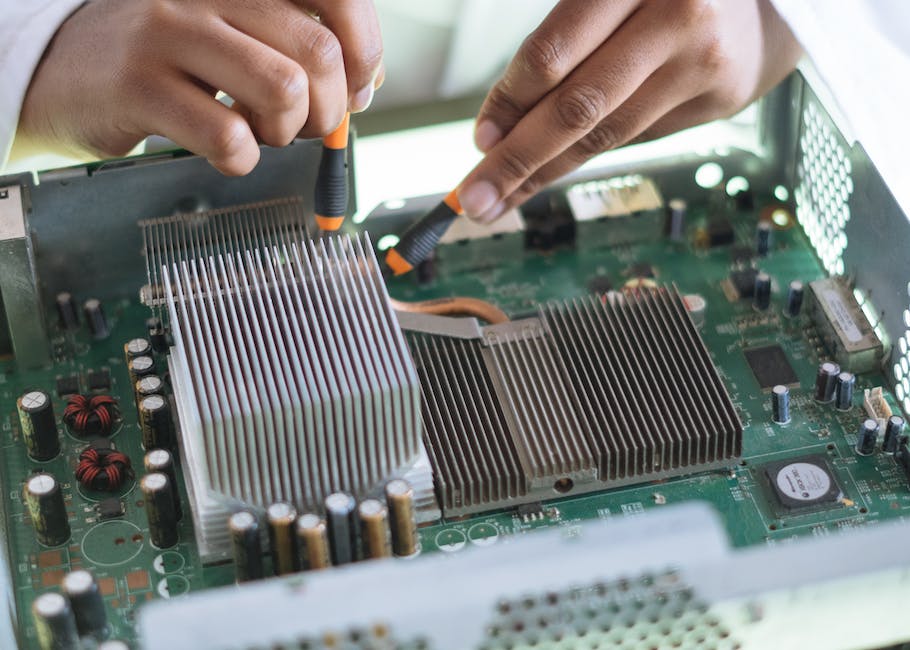Table of Contents
- Introduction
- The Importance of Strong Leadership in Combating Global Antimicrobial Resistance
- Strategies for Effective Leadership in Addressing Antimicrobial Resistance
- The Role of Political Leaders in Tackling Antimicrobial Resistance
- Leadership Initiatives and Collaborative Efforts in the Fight Against Antimicrobial Resistance
- Q&A
- Conclusion
Leading the way to a healthier future: Empowering leaders in the battle against global antimicrobial resistance.
Introduction
The Role of Leadership in the Fight Against Global Antimicrobial Resistance
Antimicrobial resistance (AMR) is a growing global health threat that requires urgent attention and action. It refers to the ability of microorganisms, such as bacteria, viruses, and parasites, to resist the effects of antimicrobial drugs, rendering them ineffective in treating infections. The rise of AMR poses significant challenges to healthcare systems worldwide, as it can lead to increased morbidity, mortality, and healthcare costs. In this context, leadership plays a crucial role in addressing and combating this global issue. Effective leadership is essential in driving policy changes, promoting awareness, fostering collaboration, and implementing strategies to prevent and control AMR. This article explores the role of leadership in the fight against global antimicrobial resistance and highlights the importance of strong leadership in tackling this pressing public health concern.
The Importance of Strong Leadership in Combating Global Antimicrobial Resistance

The fight against global antimicrobial resistance (AMR) is a pressing issue that requires strong leadership at all levels. AMR occurs when microorganisms, such as bacteria, viruses, fungi, and parasites, develop resistance to the drugs used to treat infections. This phenomenon poses a significant threat to public health, as it can render once-effective treatments ineffective, leading to increased morbidity, mortality, and healthcare costs. To effectively combat AMR, it is crucial to have leaders who understand the complexity of the issue and can drive coordinated efforts to address it.
Strong leadership is essential in combating global AMR for several reasons. Firstly, leaders play a crucial role in raising awareness about the problem and its potential consequences. By effectively communicating the risks associated with AMR to the public, healthcare professionals, policymakers, and other stakeholders, leaders can mobilize support and create a sense of urgency. This awareness is vital in garnering the necessary resources and political will to tackle AMR effectively.
Secondly, leaders are responsible for developing and implementing policies and strategies to combat AMR. They must work closely with experts in the field to develop evidence-based guidelines for the appropriate use of antimicrobials, infection prevention and control measures, and surveillance systems. These policies should be tailored to the specific needs and challenges of each country or region, taking into account factors such as healthcare infrastructure, socioeconomic conditions, and cultural practices. Effective leadership is crucial in ensuring that these policies are implemented and monitored effectively.
Furthermore, leaders must foster collaboration and coordination among various stakeholders involved in the fight against AMR. This includes healthcare professionals, researchers, policymakers, pharmaceutical companies, and international organizations. By bringing these diverse groups together, leaders can facilitate the exchange of knowledge and best practices, promote research and development of new antimicrobial drugs, and ensure that resources are allocated efficiently. Collaboration is particularly important in addressing the global nature of AMR, as antimicrobial-resistant pathogens can easily spread across borders.
In addition to collaboration, leaders must also advocate for increased investment in research and development of new antimicrobial drugs. The development of new antibiotics has been slow in recent years, partly due to the financial challenges faced by pharmaceutical companies in bringing these drugs to market. Leaders must work with policymakers and industry stakeholders to create incentives for the development of new antimicrobials, such as funding research, streamlining regulatory processes, and implementing market-based mechanisms to ensure affordable access to these drugs.
Lastly, leaders must prioritize education and training to build capacity in the fight against AMR. This includes educating healthcare professionals on the appropriate use of antimicrobials, promoting infection prevention and control practices, and raising awareness among the general public about the importance of responsible antimicrobial use. By investing in education and training, leaders can empower individuals and communities to take action against AMR and contribute to the overall effort.
In conclusion, strong leadership is crucial in the fight against global antimicrobial resistance. Leaders play a vital role in raising awareness, developing and implementing policies, fostering collaboration, advocating for increased investment in research and development, and prioritizing education and training. By effectively leading these efforts, leaders can help mitigate the threat of AMR and ensure the availability of effective treatments for future generations. The fight against AMR requires a coordinated and sustained effort, and strong leadership is the key to success.
Strategies for Effective Leadership in Addressing Antimicrobial Resistance
Strategies for Effective Leadership in Addressing Antimicrobial Resistance
Antimicrobial resistance (AMR) is a global health crisis that threatens to undo decades of progress in modern medicine. It occurs when microorganisms, such as bacteria, viruses, fungi, and parasites, develop resistance to the drugs used to treat infections. This phenomenon has serious implications for public health, as it renders many commonly used antibiotics ineffective. In order to combat this growing threat, effective leadership is crucial. This article will explore strategies for effective leadership in addressing antimicrobial resistance.
First and foremost, leaders must prioritize AMR as a global health priority. They must recognize the urgency of the situation and the potential catastrophic consequences if action is not taken. By elevating AMR to the top of the global health agenda, leaders can mobilize resources, garner political support, and drive international collaboration. This requires strong advocacy skills and the ability to communicate the gravity of the situation to stakeholders at all levels.
Secondly, leaders must foster interdisciplinary collaboration. Addressing AMR requires a multi-sectoral approach that involves not only healthcare professionals but also policymakers, researchers, veterinarians, and the agricultural industry. Leaders must bring together these diverse stakeholders and facilitate dialogue and cooperation. This can be achieved through the establishment of task forces, working groups, and international partnerships. By breaking down silos and promoting collaboration, leaders can harness the collective expertise and resources needed to tackle AMR effectively.
Furthermore, leaders must promote research and innovation. The development of new antibiotics and alternative treatment options is essential in the fight against AMR. Leaders must advocate for increased funding for research and development, as well as create incentives for pharmaceutical companies to invest in the development of new antimicrobial drugs. Additionally, leaders must support initiatives that promote responsible use of antibiotics, such as antibiotic stewardship programs in healthcare settings. By encouraging innovation and responsible use, leaders can help slow down the emergence and spread of drug-resistant infections.
In addition, leaders must prioritize education and awareness. Many people, including healthcare professionals, policymakers, and the general public, are unaware of the magnitude of the AMR crisis and the actions they can take to mitigate it. Leaders must invest in educational campaigns that raise awareness about the importance of responsible antibiotic use, infection prevention, and the need for new treatment options. By empowering individuals with knowledge, leaders can mobilize a collective effort to combat AMR.
Lastly, leaders must advocate for policy change. Effective leadership in addressing AMR requires the ability to influence policy at the national and international levels. Leaders must work with policymakers to develop and implement comprehensive strategies that address all aspects of AMR, including surveillance, prevention, and treatment. This may involve advocating for legislation that restricts the use of antibiotics in agriculture, promoting regulations that ensure the quality and safety of antimicrobial drugs, and supporting policies that incentivize the development of new antibiotics. By driving policy change, leaders can create an enabling environment for effective AMR control.
In conclusion, effective leadership is crucial in the fight against global antimicrobial resistance. Leaders must prioritize AMR as a global health priority, foster interdisciplinary collaboration, promote research and innovation, prioritize education and awareness, and advocate for policy change. By implementing these strategies, leaders can mobilize a collective effort to address AMR and safeguard the future of modern medicine. The time to act is now, and effective leadership is the key to success.
The Role of Political Leaders in Tackling Antimicrobial Resistance
Antimicrobial resistance (AMR) is a global health crisis that threatens to undo decades of progress in modern medicine. It occurs when microorganisms, such as bacteria, viruses, fungi, and parasites, develop resistance to the drugs used to treat infections. This phenomenon renders many antibiotics, antivirals, and antifungals ineffective, making it increasingly difficult to treat common infections and potentially leading to higher mortality rates.
In the fight against AMR, political leaders play a crucial role in implementing policies and strategies to address this growing threat. They have the power to shape national and international agendas, allocate resources, and mobilize stakeholders to take action. By prioritizing AMR on their political agendas, leaders can raise awareness, drive research and development, and promote responsible use of antimicrobials.
One of the key responsibilities of political leaders is to create an enabling environment for effective AMR governance. This involves establishing national action plans and coordinating efforts across different sectors, including health, agriculture, and environment. By bringing together experts from various fields, leaders can foster collaboration and ensure a holistic approach to tackling AMR.
Furthermore, political leaders can advocate for increased funding for research and development of new antimicrobial drugs. The discovery of new antibiotics has stagnated in recent decades, partly due to the lack of financial incentives for pharmaceutical companies. By investing in research, leaders can incentivize the development of new drugs and alternative treatments, which are urgently needed to combat AMR.
In addition to funding research, political leaders can also promote responsible use of antimicrobials. This includes implementing regulations to restrict the use of antibiotics in agriculture and promoting appropriate prescribing practices in healthcare settings. By raising awareness about the dangers of overuse and misuse of antimicrobials, leaders can encourage behavior change among healthcare professionals, farmers, and the general public.
Political leaders also have a role to play in advocating for international cooperation in the fight against AMR. AMR knows no borders, and efforts to address this issue must be global in nature. Leaders can engage in diplomatic efforts to promote collaboration between countries, share best practices, and harmonize regulations. By working together, nations can strengthen surveillance systems, improve infection prevention and control measures, and ensure access to quality-assured antimicrobials.
Moreover, political leaders can use their platforms to raise public awareness about AMR. By speaking out about the dangers of AMR and the need for collective action, leaders can mobilize public support and galvanize communities to take action. This can include initiatives such as educational campaigns, public-private partnerships, and community engagement programs.
In conclusion, political leaders play a crucial role in the fight against global antimicrobial resistance. Through their leadership, they can shape policies, allocate resources, and mobilize stakeholders to address this urgent health crisis. By prioritizing AMR on their political agendas, advocating for increased funding and responsible use of antimicrobials, promoting international cooperation, and raising public awareness, leaders can contribute to the development of sustainable solutions to combat AMR. It is imperative that political leaders recognize the gravity of the situation and take decisive action to protect the effectiveness of antimicrobials for future generations.
Leadership Initiatives and Collaborative Efforts in the Fight Against Antimicrobial Resistance
Leadership Initiatives and Collaborative Efforts in the Fight Against Antimicrobial Resistance
Antimicrobial resistance (AMR) is a global health crisis that threatens the effectiveness of antibiotics and other antimicrobial drugs. It is a complex issue that requires a multifaceted approach to address. One crucial aspect of tackling AMR is effective leadership and collaborative efforts from various stakeholders, including governments, healthcare professionals, researchers, and the pharmaceutical industry.
Leadership plays a pivotal role in driving the fight against AMR. It involves setting a clear vision and strategy, mobilizing resources, and coordinating efforts to achieve common goals. Governments, in particular, have a crucial role to play in providing strong leadership and creating an enabling environment for action. They can establish policies and regulations that promote responsible use of antibiotics, encourage research and development of new antimicrobial drugs, and support surveillance and monitoring systems.
In addition to government leadership, collaborative efforts among different stakeholders are essential in combating AMR. This includes partnerships between healthcare professionals, researchers, and the pharmaceutical industry. Healthcare professionals, such as doctors and nurses, are on the front lines of patient care and have a significant role in promoting responsible antibiotic use. They can educate patients about the risks of overusing antibiotics, prescribe antibiotics judiciously, and implement infection prevention and control measures.
Researchers also play a critical role in the fight against AMR. They can contribute to the development of new antimicrobial drugs, diagnostic tools, and vaccines. Additionally, they can conduct surveillance and monitoring studies to track the emergence and spread of resistant bacteria. Collaboration between researchers and the pharmaceutical industry is crucial for translating scientific discoveries into effective treatments. The pharmaceutical industry can invest in research and development, manufacturing, and distribution of new antimicrobial drugs.
International collaboration is also vital in addressing AMR. The World Health Organization (WHO) has been at the forefront of global efforts to combat AMR. It has developed a Global Action Plan on AMR, which provides a roadmap for countries to develop national action plans. The WHO also coordinates surveillance and monitoring efforts, provides technical support to countries, and promotes research and development of new antimicrobial drugs.
Furthermore, regional and global partnerships have been established to foster collaboration and knowledge sharing. For example, the Global Antibiotic Research and Development Partnership (GARDP) brings together public and private sector organizations to develop new antibiotics and ensure their availability and affordability. The Combating Antibiotic-Resistant Bacteria Biopharmaceutical Accelerator (CARB-X) is another initiative that supports the development of new antibacterial products.
In conclusion, effective leadership and collaborative efforts are crucial in the fight against AMR. Governments must provide strong leadership by implementing policies and regulations that promote responsible antibiotic use and support research and development. Collaboration between healthcare professionals, researchers, and the pharmaceutical industry is essential for translating scientific discoveries into effective treatments. International partnerships, such as those led by the WHO, facilitate knowledge sharing and coordination of efforts. By working together, we can address the global threat of AMR and ensure the continued effectiveness of antimicrobial drugs.
Q&A
1. What is the role of leadership in the fight against global antimicrobial resistance?
Leadership plays a crucial role in raising awareness, coordinating efforts, and implementing policies to combat global antimicrobial resistance.
2. How can leaders contribute to addressing antimicrobial resistance?
Leaders can promote responsible use of antibiotics, support research and development of new antimicrobial drugs, and advocate for policies that prioritize infection prevention and control.
3. Why is leadership important in tackling antimicrobial resistance?
Leadership is essential in driving global action, fostering collaboration among stakeholders, and ensuring that antimicrobial resistance remains a priority on the global health agenda.
4. What are the potential consequences of a lack of leadership in addressing antimicrobial resistance?
Without strong leadership, antimicrobial resistance could continue to worsen, leading to increased mortality rates, higher healthcare costs, and the potential loss of effective treatments for common infections.
Conclusion
In conclusion, leadership plays a crucial role in the fight against global antimicrobial resistance. Effective leadership is needed to raise awareness, promote responsible use of antibiotics, and implement policies and strategies to combat this growing threat. Leaders must collaborate with various stakeholders, including healthcare professionals, policymakers, researchers, and the public, to develop and implement comprehensive action plans. By taking proactive measures and demonstrating strong leadership, we can mitigate the impact of antimicrobial resistance and safeguard the effectiveness of antibiotics for future generations.





